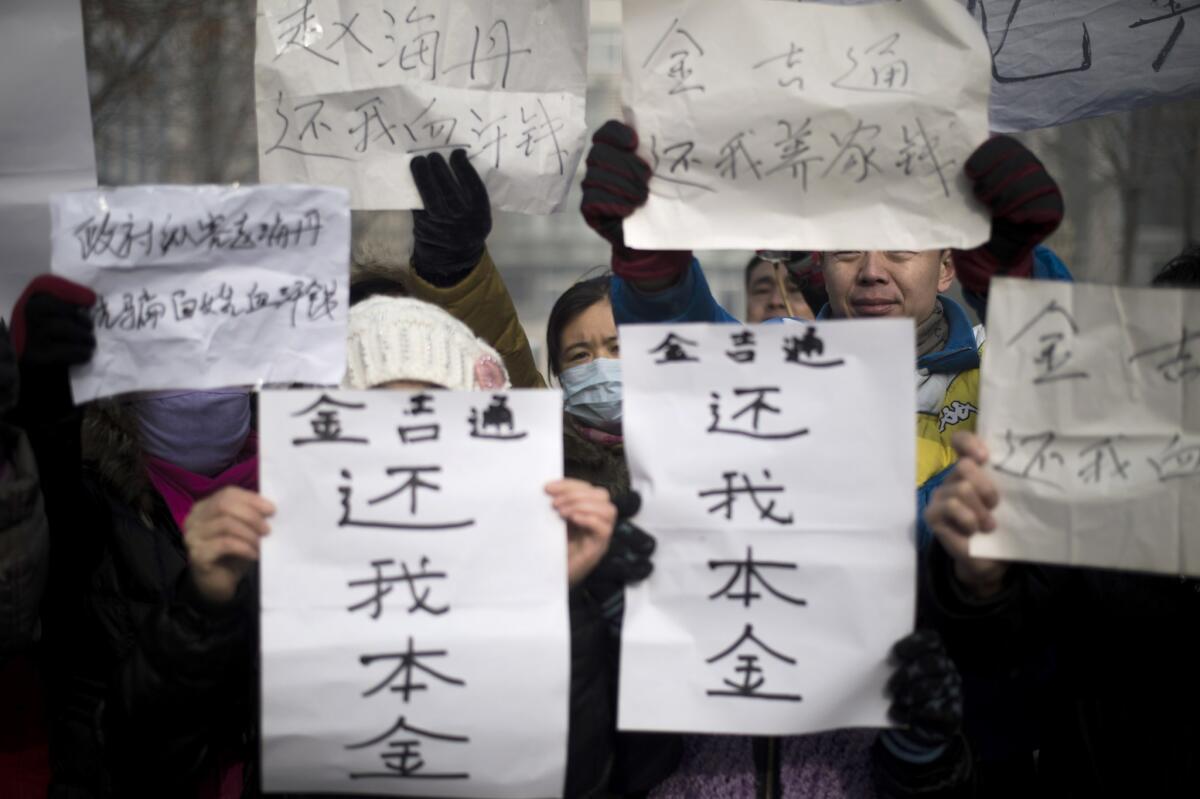Keeping tabs on Chinese corruption: There’s an app for that

Not a day seems to pass in China without a fresh news report of a government corruption probe or scandal. More than two years ago, the Communist Party launched a far-reaching anti-graft campaign, and the numbers have been both staggering and mind-numbing. Last year alone, party authorities investigated 53,000 cases.
Keeping track of it all -- or even paying attention, given the constant drumbeat of cases -- isn’t easy. So the party has devised a 21st century solution: a mobile app that brings the latest corruption headlines right to users’ cellphones.
The new app, developed by the Central Commission for Disciplinary Inspection (CCDI), the party’s anti-corruption monitor, was released last week for both Android and iOS devices. It provides breaking news on corruption cases and violations of party conduct rules, as well as interactive features such as commentary videos on macro issues. It also makes frequent use of push notifications, sometimes sending one every 20 minutes.
Bribery, profligate spending and embezzlement are among the problems that have been sullying the image of the Communist Party. In a year-end report released this week, the CCDI said 71,748 people were investigated in 2014 for “discipline violations,” a common euphemism for activities such as bribery or improper use of public funds. The targets included everyone from high-level diplomats to school headmasters.
Critics argue that the campaign won’t lead to lasting change, given the lack of effective checks and balances in a one-party system and the reluctance of officials to impose rules such as asset disclosure that would add more transparency and accountability to the process.
But the campaign has proven exceedingly popular with a wide swath of the public, who for years have had to contend with corruption in their daily lives. It is common to have to pay bribes to accomplish even mundane tasks such as getting a doctor’s appointment.
The app was created in an apparent attempt to inform even more people about the campaign and convince them that the party is working in their interest.
Cellphones might be the best way to do it: More people in China access the Internet on mobile devices than via laptop or desktop computers, with statistics from the official China Internet Network Organization Center noting 83% of China’s 527 million Internet users surf the net using a mobile phone.
It’s unclear how many people have downloaded the app to date. However, the state-run New China News Agency claimed that it has been “well-received by the public,” adding that many people also find the organization’s website to be a useful source of information regarding the crackdown. Information regarding reporting corrupt officials is easily visible on the site’s homepage.
The watchdog’s website was relaunched on Jan. 1 with a fresh design and new information detailing the procedures the organization uses to deal with accusations of corruption.
No end to the campaign seems to be in sight.
“There will be no tolerance in our anti-corruption efforts,” an article recently published on the CCDI’s website was titled. “No exceptions. Nowhere neglected. No gaps.”
Silbert is a special correspondent.
More to Read
Start your day right
Sign up for Essential California for news, features and recommendations from the L.A. Times and beyond in your inbox six days a week.
You may occasionally receive promotional content from the Los Angeles Times.






